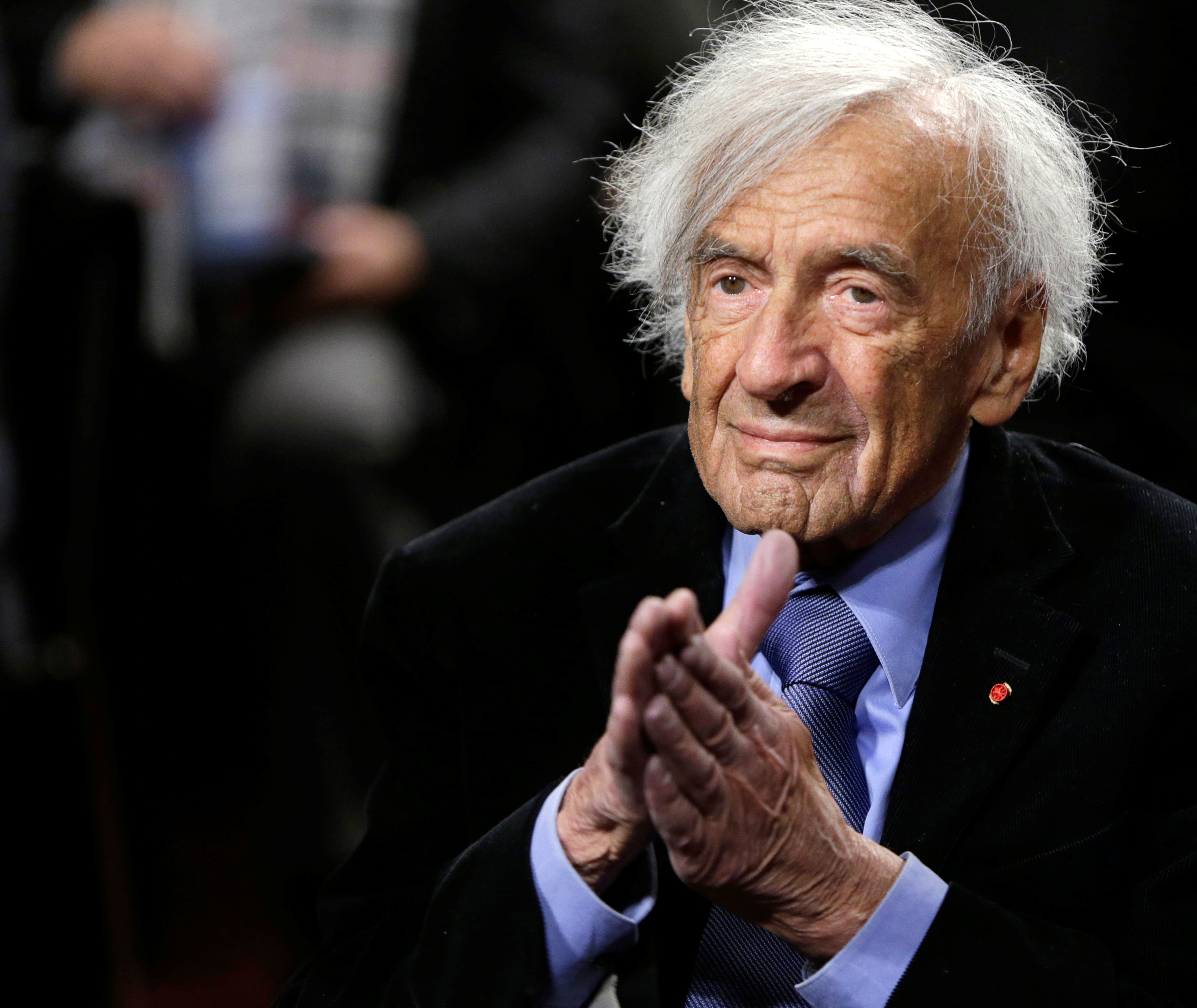Wiesel, Elie << wee ZEHL, EHL ee >> (1928-2016), an American author, became a leading spokesman for people who survived Nazi concentration camps during World War II (1939-1945). He was a prisoner at camps where the Nazis murdered millions of European Jews and other groups. Wiesel dedicated his life to describing the horrors he witnessed and to helping victims of oppression and racism. He won the 1986 Nobel Peace Prize.

Eliezer Wiesel was born on Sept. 30, 1928, in Sighet, Romania. In 1944, he was sent with his family and the town’s other Jews to a camp at Auschwitz (now Oswiecim), Poland, near Krakow. He was later sent to a camp at Buchenwald, Germany, near Weimar. Wiesel’s parents and a sister died at these camps. After Buchenwald was liberated in 1945, Wiesel settled in France. He later studied philosophy at the University of Paris, became a journalist, and moved to the United States. In 1976, Wiesel became a professor of humanities at Boston University. President Jimmy Carter appointed him chairman of the President’s Commission on the Holocaust in 1979. In 1980, Wiesel was named head of the United States Holocaust Memorial Council.
Wiesel wrote more than 35 books. His first book, Night (1958, revised edition 2006), is a memoir of his experiences in the concentration camps. It is the first volume of a trilogy (three related works). Dawn (1960) and The Accident (1961), the other works in the trilogy, are novels about survivors of the Holocaust. Wiesel’s other books include The Jews of Silence (1966), A Beggar in Jerusalem (1968), The Testament (1980), Wise Men and Their Tales (2003), and A Mad Desire to Dance (2009). Wiesel died on July 2, 2016.
